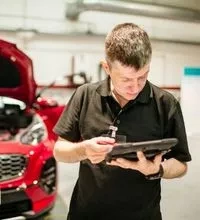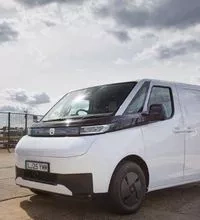Pandemic problems for MOT testers

In this article: MOT businesses still face challenges even as we return to some sort of normality, here are four problems and possible solutions
Many workshops have remained open throughout the lockdown, albeit at reduced capacity in many cases. But now the rest of the economy gathers itself to come back online and the MOT extension comes to an end, workshops are becoming busier. That’s good news for the industry but it also presents challenges for businesses, here are four challenges you need to consider.
1. No shows
The consumer has learned to book appointment just in case they might need it when services are in short supply, and don’t see anything unreasonable about doing it. Not only that but they also think cancelling the day before or on the day is acceptable. Others simply don’t turn up. So, what can you do?
The MOT manual states that it’s acceptable to pay in advance, taking payment in full for all MOT appointments made may address this issue, especially for newcomers to the business. Technology make this relatively easy to set up using an online system that takes payment at the point of booking.
2. Dirty cars
It’s always been acceptable to refuse to test a vehicle if it’s unreasonably dirty. The pandemic has led to an increase of test refusals for this reason and it’s doubtful that there is an increase in dirty cars, it’s more likely that there is reduced tolerance for working in such an environment. This stance could well be translated to other workshop services too.
3. Waiting rooms
The weather has been most cooperative during the pandemic meaning the closure of waiting rooms has been a viable solution for workshops with reduced staff. The reduction in demand has meant that staggering clients, preventing bottle neck periods for drop offs and picks ups have been easily avoided.
But as demand increases, this becomes more difficult and less favourable weather makes waiting outside less attractive. Unhappy customers are not as easy to deal with and those workshops with waiting areas may find difficulty in the expectation of managing the area.
Cleaning procedures aside, different interpretation of the new legislation can lead to a charged atmosphere which can lead to the workshop being expected to take on the role of peacekeeper. The wearing of masks becoming mandatory in some of the devolved nations is a subject of hot debate. It’s important to remember that although there is an obligation to inform of the law, there is no expectation for enforcement.
Utilising screens and marked pedestrian routes with social distance floor stickers may assist in managing the flow through the waiting room. Communicating expectation of motorist behaviour through social media channels will help to reinforce new procedures. Test and trace obligations should be covered through the usual booking requirements for MOT testing laid out in the manual.
4. Team management
For those with two-person test lanes, maintaining adequate social distancing and cleansing between different operators of the vehicle may become more difficult as the demand for MOT testing increases.
Sanitising stations in place at each point of transfer, getting the routine squared away before the rise in demand will help to make the exchange flow smoothly through the workshop.
Confidently employing this socially distant method of testing in the workshop now will pay dividends when demand increases and contribute towards keeping your team reassured that their work environment is a safe place to be.




